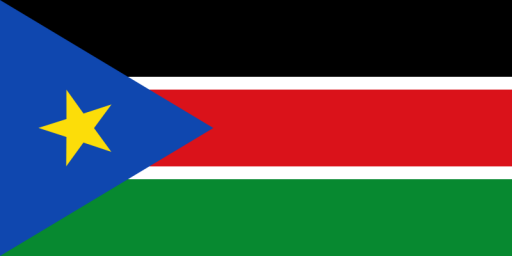Military Plan for Darfur
David Englin offers a reasonably detailed military plan for putting a stop to the genocide in Darfur, Sudan. He notes that it would be much more complicated than most imagine.
While establishing a no-fly zone would be essential, it would be a mistake to underestimate Sudan’s ability to defend the sovereignty of its airspace. Although its population remains horribly impoverished, Sudan has used its substantial oil revenues to more than double the size of its air force since 2000. Over the past four years, Sudan has purchased at least 34 new fighter jets from China, including a dozen Shenyang F-7 supersonic jets. Russia has already supplied Sudan with a large number of MiG-24 Hind helicopter gunships, and it recently sold Sudan a dozen fourth-generation MiG-29 fighter jets, which are considered to be on par with the most advanced U.S. fighters. Both China and Russia have supplied Sudan with modern radar stations for command and control. It is not clear who flies Sudan’s more advanced warplanes, and some have suggested that Russian mercenary pilots may be involved. In any case, this is not an air force to be taken lightly.
Still, he has no doubt that we could put a stop to murder from the skies, especially with a little help from probable allies. He is less sure what type of ground force would be required get the job done:
Reports coming out of the Rwandan genocide suggest that as few as 1,000 to 2,000 troops could have provided the security necessary to prevent the deaths of 800,000 people. The African Union announced plans Wednesday to send 2,000 troops to Darfur. Britain’s top general has said he could muster 5,000 troops for Sudan and France has 1,000 troops already stationed in neighboring Chad, including many from the vaunted French Foreign Legion. (With the U.S. military already stretched thin in Iraq and Afghanistan, the United States has officially demurred on the issue of sending troops.) It is not clear, however, if military intervention on the ground in Sudan would look more like Rwanda or more like Somalia, where 26,000 American troops were sent into a hostile environment to secure and deliver humanitarian aid. Rwanda was about one ethnic group murdering another. In Somalia, warring clans fought over control of humanitarian aid, and military force was necessary to get aid to the people who needed it.
*** Pushing into Darfur to force open border crossings, drive out or disarm resistant Janjaweed, and establish safe zones around refugee camps would require a significant commitment of ground troops, probably many more than the 7,000 or so British, French, African Union, and Australian troops already being considered. And if concerned nations are serious about military intervention, they had better make sure they have the stomach to endure casualties in what could turn out to be a bloody fight. If not, then they had better make sure they have the stomach to stand by while, once again, hundreds of thousands of Africans are brutally extinguished by their own government.
My strong suspicion is that it will be the latter. It is a virtual certainly that nothing will happen absent a substantial U.S. leadership role. Neither President Bush nor Senator Kerry seem particularly interested in the latest genocide in Sudan and the vast majority of the public are unaware that it’s taking place. And we are rather busy at the moment fighting wars more relevant to U.S. national security interests. I can’t imagine that the president would be willing to send Americans from an already overstretched military to die to save the Sudanese from themselves.
Update: Matthew Yglesias seems to agree but thinks it’s a shame.
I think, though, that this sort of all-or-nothing attitude is counterproductive. If you say that 7,000 troops is desperately inadequate, you’re going to wind up getting zero. Meanwhile, it seems that 7,000 troops could probably do a great deal of good.
That’s rather unclear. A “desperately inadequate” force is likely to get themselves killed and achieve very little. Except making sure we’ll not send forces on a mission like that again until that disaster falls down the memory hole.





Darfur looks more like Somalia that Rwanda, and that means there won’t be as much political will to stop the violence as there should be.
Qadaffi is a terrorist-mongering dictator, but his idea of a pan-African union isn’t such a bad idea. With liberalized trade and greater military cooperation, they would be more able to raise the tens of thousands of troops you’d need to hold the ground and, if necessary, engage the Muslim fighters.
Africa is the next great war zone. Eastern Africa has seen cash pour in for years from Saudi to help increase Islamic influence in Tanzania, Sudan, Mozambique, Dijbouti, and other areas. It’s possible we’ll start seeing radicalized Muslims flow out of this region looking for ways to kill Westerners. Stopping the killing in Sudan is a good place to start turning things back. Stablizing the economies of Tanzania and Kenya would be money well-spent.
The general disregard for Africa by Americans is going to bite us in the next 20-30 years. We virtually ignored AIDS until it consumed a large portion of the intellectual class in sub-Saharan Africa. We stayed out of Rwanda and Burundi until it was too late (and it should be noted that France was complicit in the genocide by backing the Hutus and refusing to cooperate initially with the UN), and when the darkness spilled over into Zaire we ignored it until we ended up with a war that has engulfed half the continent. Clinton paid lip service to Africa, and outside of Sudan Dubya has done even less.
We need to wake up and realize that if Africa remains this giant economic black hole we’ll be stuck solving its problems for all eternity, and our foreign and humantarian aid budgets will be sucked up by failed African states with crumbling infrastructures and endless food shortages. Cutting off foreign aid is not an option. Compassion fatigue is pervasive in this country, but we need to overcome it and look towards a long-term investment in Africa.